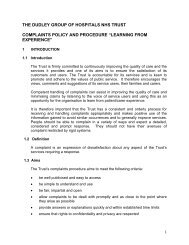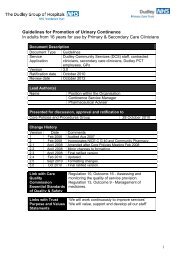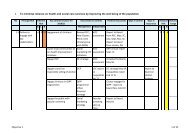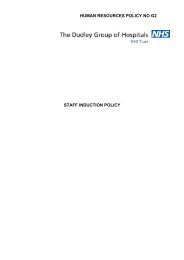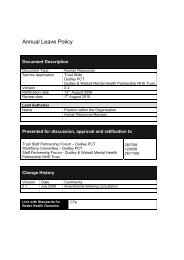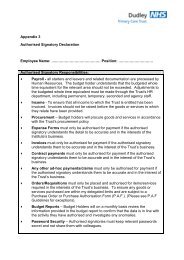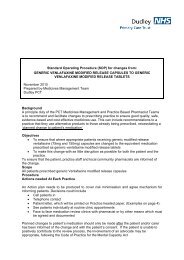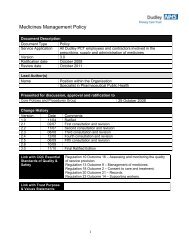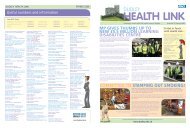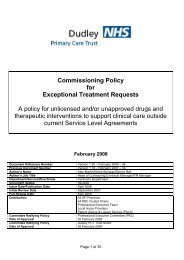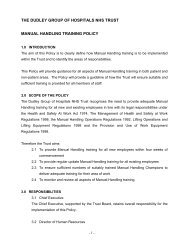Chronic Kidney Disease Pathway Document Description Presented ...
Chronic Kidney Disease Pathway Document Description Presented ...
Chronic Kidney Disease Pathway Document Description Presented ...
Create successful ePaper yourself
Turn your PDF publications into a flip-book with our unique Google optimized e-Paper software.
Glycaemic Control<br />
CKD and Diabetes<br />
Diabetes mellitus is the most common cause of chronic kidney disease<br />
worldwide (Burrows-Hudson 2005) (Levy et al 2006) and at least 20-30% of<br />
people with diabetes will have some evidence of the disease (Audit Commission<br />
2002). There is a variation in the incidence of diabetes among racial and ethnic<br />
groups, with people of South Asian, African and African-Caribbean descent<br />
having a higher than average risk of type 2 diabetes (DOH 2001). The risk of<br />
nephropathy is related to the duration of diabetes with microalbuminuria being<br />
the first sign, progressing to albuminuria then nephropathy. The presence of<br />
urine albumin whether microalbuminuria or albuminuria strongly increases the<br />
person’s cardiovascular risk (University Hospital of Leicester 2006). Thereby a<br />
person with diabetes should not be assessed in isolation for kidney disease but<br />
also for lipid lowering, anti-platelet therapy and hypertension in tandem. Optimal<br />
glycaemic control should be the cornerstone of all treatment for diabetes care.<br />
For guidance please see Dudley Diabetes Management Guidelines for Adults<br />
2006.<br />
Persistent hyperglycaemia results in the thickening of the basement membranes<br />
and accumulation of proteins in the glomeruli (Levy et al 2006). Research studies<br />
suggest that intensive glycaemic control can reduce the rate of microalbuminuria,<br />
proteinuria and nephropathy (Gross et al 2005) and improvement in glycaemic<br />
control may reduce the risk of patients with diabetes developing both<br />
macrovascular and microvascular complications (DOH 2001). Studies relating to<br />
hypertension control also suggest similar results in relation to prevention of renal<br />
failure (DOH 2001) recommending the use of ACE inhibitors (Angiotension<br />
Converting Enzyme Inhibitors) or ARBs (Angiotension Receptor Blockers) to<br />
delay the onset of diabetic nephropathy in people with microalbuminuria.<br />
45



